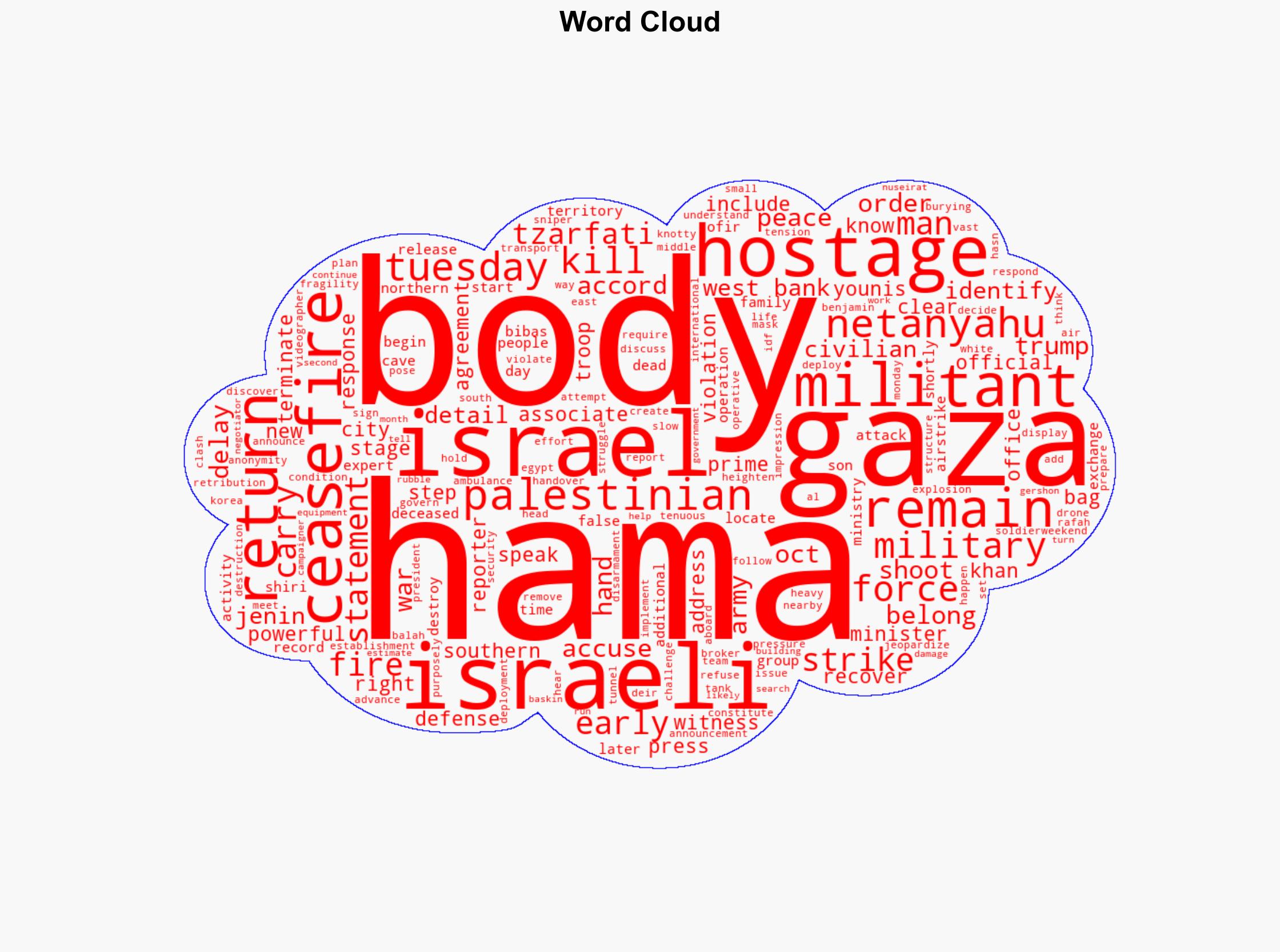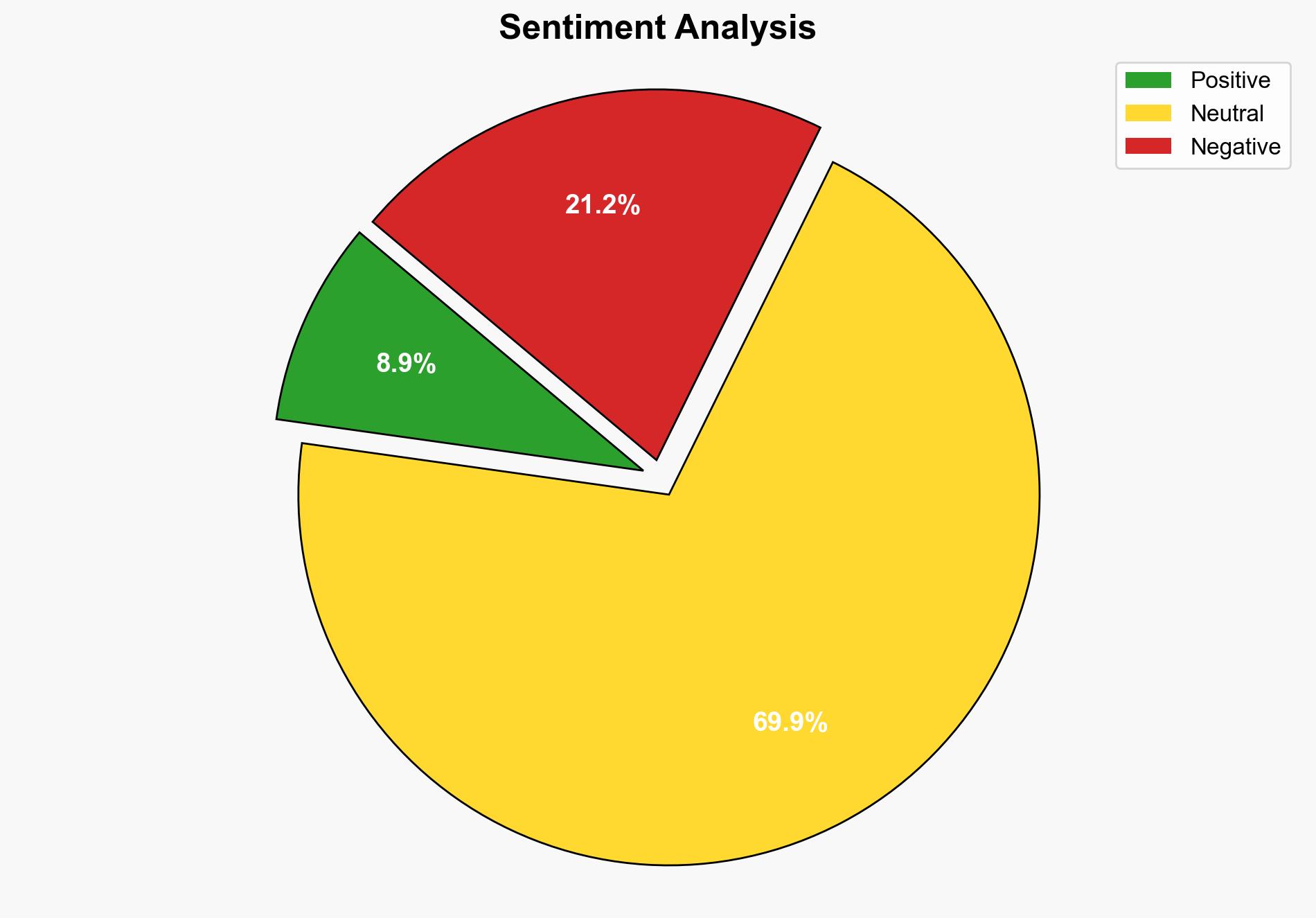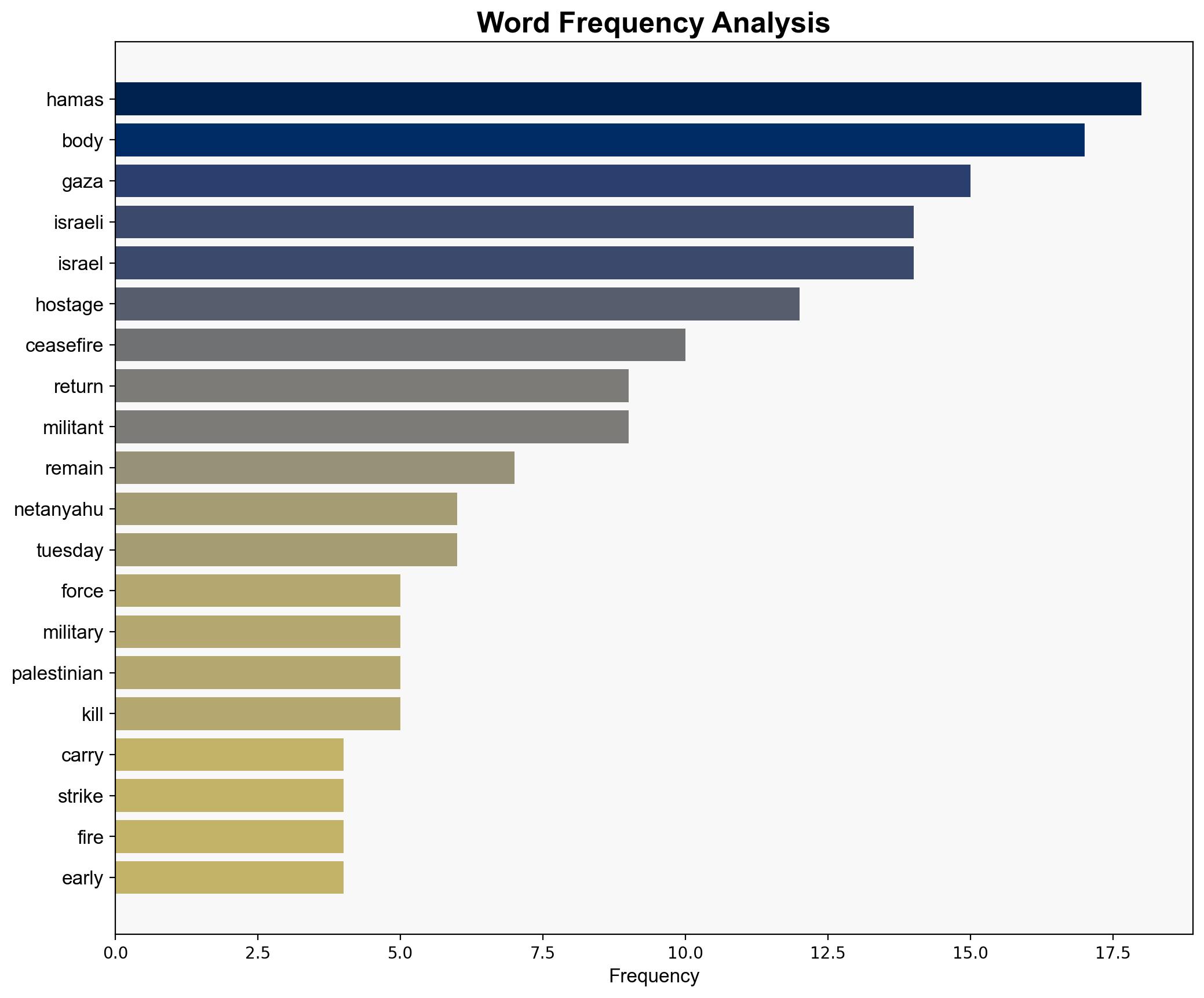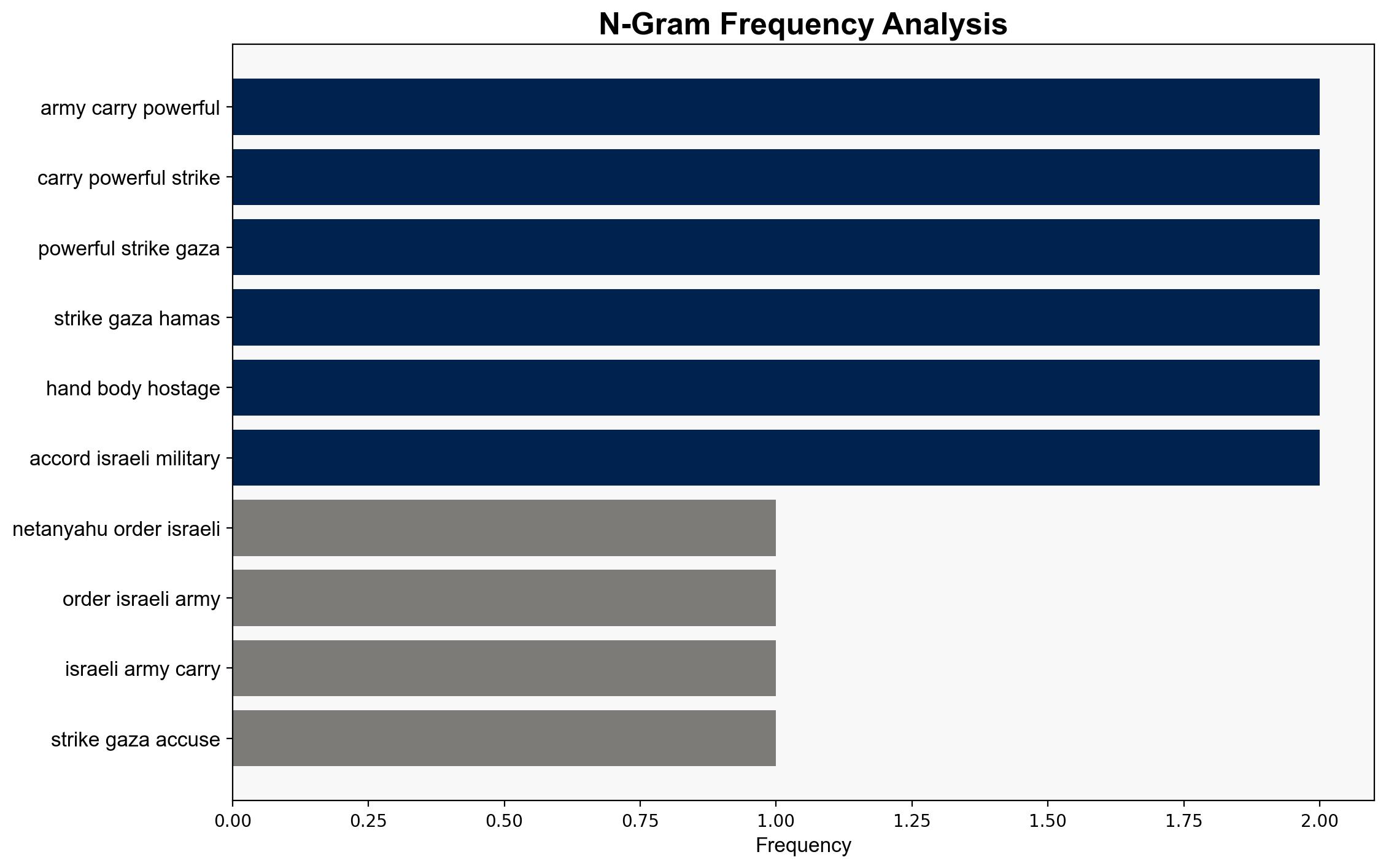Netanyahu orders Israeli army to carry out powerful strikes in Gaza – CBS News
Published on: 2025-10-28
Intelligence Report: Netanyahu orders Israeli army to carry out powerful strikes in Gaza – CBS News
1. BLUF (Bottom Line Up Front)
The strategic judgment is that the Israeli military action in Gaza is primarily a response to perceived violations of the ceasefire by Hamas, with a secondary aim of pressuring Hamas to comply with hostage return agreements. The most supported hypothesis is that Israel’s actions are intended to reinforce its deterrence posture. Confidence level: Moderate. Recommended action: Engage in diplomatic efforts to stabilize the ceasefire and address humanitarian concerns to prevent further escalation.
2. Competing Hypotheses
1. **Hypothesis A:** The Israeli strikes are a direct response to Hamas’s violation of the ceasefire, aiming to deter further breaches and ensure the return of hostages.
2. **Hypothesis B:** The strikes are part of a broader strategy by Israel to weaken Hamas’s military capabilities and influence in Gaza, using the ceasefire violations as a pretext.
Using the Analysis of Competing Hypotheses (ACH) 2.0, Hypothesis A is better supported by the immediate context of ceasefire violations and the specific mention of hostages. Hypothesis B lacks direct evidence in the current intelligence but cannot be entirely dismissed due to historical patterns of Israeli military strategy.
3. Key Assumptions and Red Flags
– **Assumptions:** It is assumed that Hamas is solely responsible for ceasefire violations and that Israel’s military actions are proportionate responses.
– **Red Flags:** The lack of independent verification of ceasefire violations and the potential for misinformation or propaganda from both sides.
– **Blind Spots:** The internal dynamics within Hamas and potential external influences (e.g., Iran) are not fully explored.
4. Implications and Strategic Risks
The continuation of military strikes risks escalating into a broader conflict, potentially drawing in regional actors and affecting global oil markets. Cybersecurity threats may increase as both sides could resort to cyber warfare. The humanitarian situation in Gaza could deteriorate, leading to international condemnation and pressure on Israel.
5. Recommendations and Outlook
- Engage in multilateral diplomatic efforts to reinforce the ceasefire, involving key regional and international stakeholders.
- Enhance intelligence sharing with allies to monitor potential escalations and cyber threats.
- Scenario Projections:
- Best Case: Ceasefire holds with international mediation, and hostages are returned.
- Worst Case: Full-scale conflict resumes, drawing in regional actors and leading to significant civilian casualties.
- Most Likely: Periodic skirmishes continue, with diplomatic efforts preventing full-scale war.
6. Key Individuals and Entities
– Benjamin Netanyahu
– Hamas leadership
– Donald Trump (mentioned in context)
7. Thematic Tags
national security threats, counter-terrorism, regional focus





